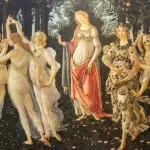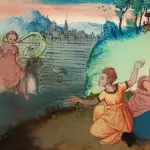The Renaissance was a time of great cultural and artistic achievement in Europe, and it was characterized by a renewed interest in the classical art and culture of ancient Greece and Rome. One of the key intellectual movements that fueled this interest was humanism, which had a profound impact on the Renaissance and helped to shape the course of Western thought and culture.
Humanism was a philosophical and cultural movement that emerged during the Renaissance, and it was characterized by a focus on human experience, reason, and individualism. Humanists believed that the individual was capable of great achievement and that the pursuit of knowledge and understanding was essential to human progress.
One of the ways in which humanism impacted the Renaissance was by encouraging a renewed interest in classical learning and culture. Humanists believed that the study of classical texts, such as the works of Plato and Aristotle, was essential to understanding the human condition and to advancing human knowledge and understanding.
This focus on classical learning and culture was reflected in the art and literature of the Renaissance, which often drew inspiration from classical themes and motifs. Artists and writers of the time sought to create works that reflected the humanist values of individualism and reason, and they often used classical themes and motifs to express these values.
Humanism also had a profound impact on the way that people thought about religion and spirituality during the Renaissance. Humanists believed that the individual had the capacity to understand and interpret religious texts, rather than relying solely on the authority of the Church. This led to a renewed interest in the study of the Bible and to the development of new religious movements, such as Protestantism.
One of the most famous humanists of the Renaissance was Erasmus of Rotterdam. Erasmus was a Dutch scholar and theologian who believed in the importance of classical learning and humanist values. His writings, which were widely read throughout Europe, encouraged people to think critically about their beliefs and to pursue knowledge and understanding in all areas of life.
In conclusion, the impact of humanism on the Renaissance was profound and far-reaching. Humanism encouraged a renewed interest in classical learning and culture, and it helped to shape the art, literature, and philosophy of the Renaissance. Humanism also had a profound impact on the way that people thought about religion and spirituality, and it paved the way for new religious movements and intellectual developments that continue to shape Western culture to this day.











Leave a Reply